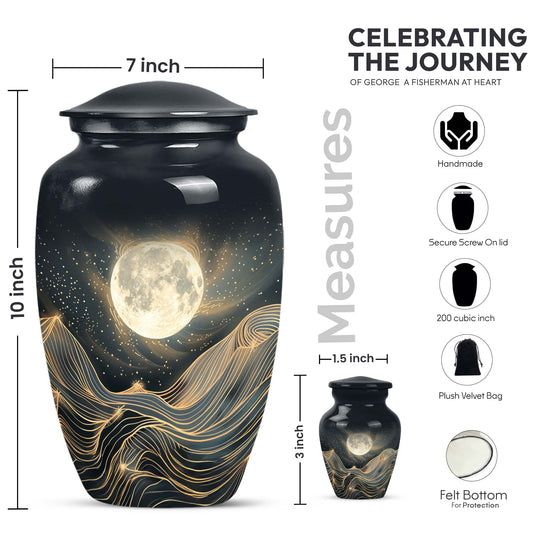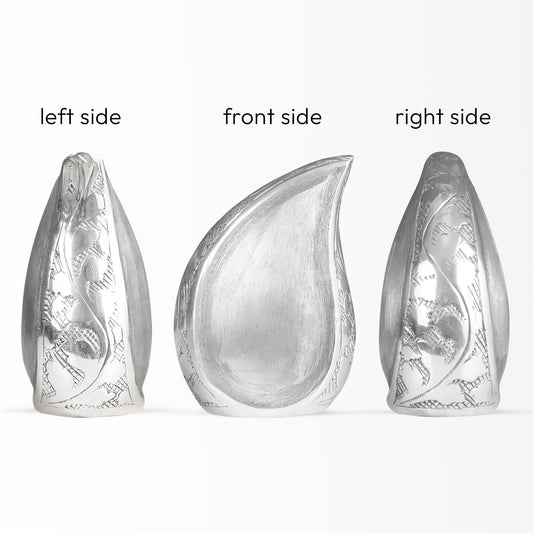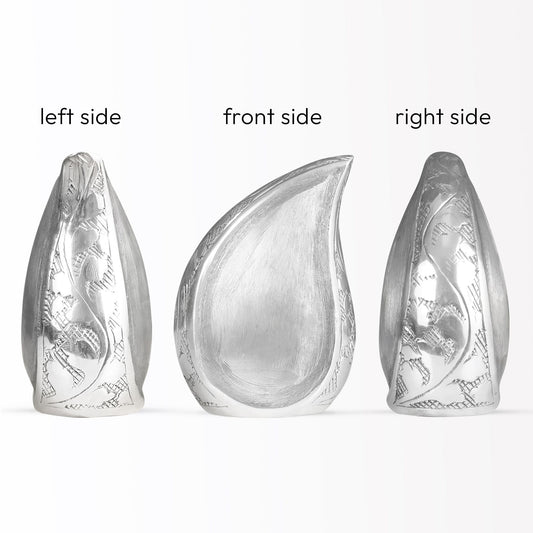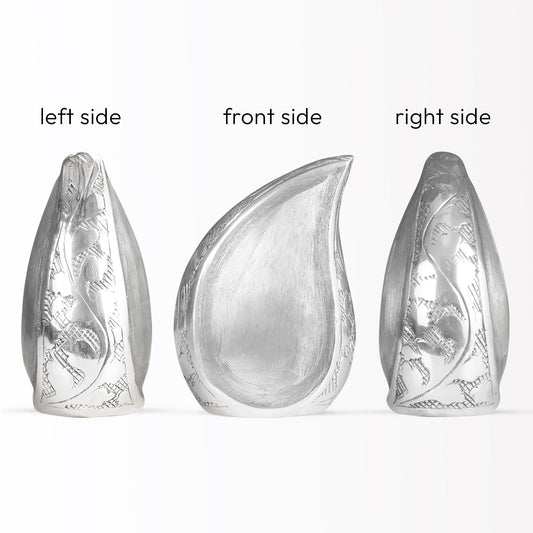Popular Urns
Process of Cremation In Colorado Explained

Cremation Laws in Colorado State
The process of cremation in Colorado is overseen by the Colorado Department of Regulatory Agencies under a body of regulations to protect public health but in harmony with individual will. The key regulations include requirements for consent, handling of remains, and crematory operations.
Consent Legal Requirements
Consent in writing is required as indicated under the Colorado state law, before conducting cremation. This authority may be given by the deceased if he had previously provided for it or may be given by a member of his family or by a legal representative.
The authority to decide is usually ranked in order of preference. It normally goes first to any surviving spouse, then children, parents, and other close relatives. Unless explicit permission is obtained, cremation cannot be carried out. This is the reason why this requirement is made as a way of upholding the wishes of the dead and to ensure that unwarranted acts do not stir family debates or emotional pain.

Rules of Crematories
Colorado's crematories are supposed to be licensed in addition to strictly adhering to health and safety.
The facilities of crematories operated by Colorado Department of Public Health and Environment assure execution of proper handling, tracking, and disposal of the remains. Cremation is something that is individual, but group cremation is particularly allowed in exceptional cases, of which it has only very rarely granted. Thus, many careless practices leading to quite miserable situations like mishandled remain or misidentified will thus be prevented.
Ashes Management
The ashes are returned to the family with proper identification documentation. Under Colorado law, it is up to the family to decide what to do with the ashes: scatter, bury, or in an urn. Ashes may be scattered in public areas, but only with a permit or landowner approval. This freedom allows the state of Colorado to respect personal choice and traditional practices but also embrace newer, more "green" ideas about "green" burials or scattering in a park.

The greatest outcome of these acts is lesser chances for litigations within a family setting. With this evident ranking for the consent, the Colorado law aims at making this more difficult to allow for fewer disputes from disagreements about what the deceased would have liked.
This, in return, limits the option whereby families cannot agree on who makes the decision. Another trend that the application of these laws reflects is the increased use of the process of cremation. However, the process poses some environmental issues due to its high energy demands and resultant gas. This brought forward debates on the alternative procedure, such as alkaline hydrolysis, legal in Colorado, as environmentally friendly.
Overall, the cremation laws in Colorado balance respect for one's wishes or those of family with the reasoning of health and public considerations.
ALSO READ:
A Guide to Funeral and Wake Etiquette: What to Know

























































































